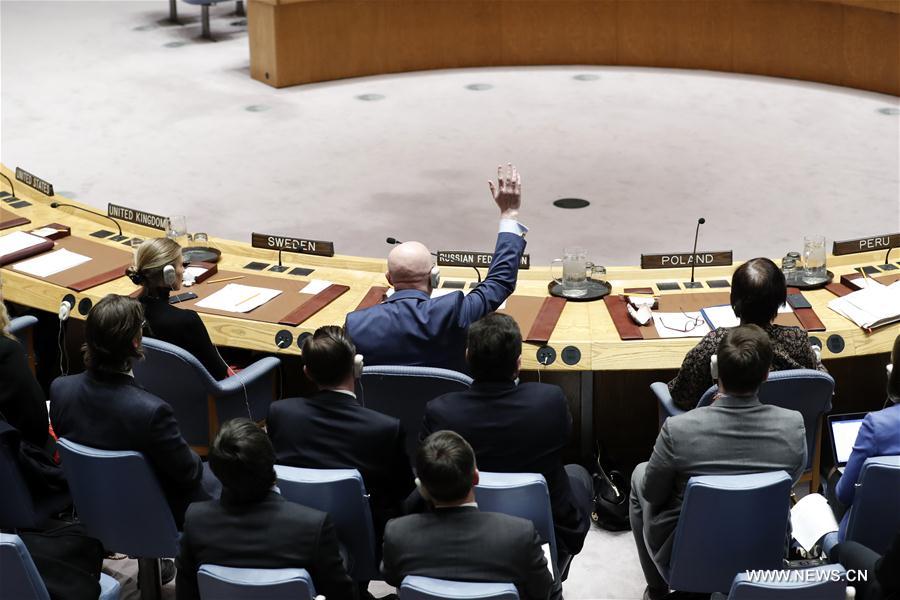UN Security Council adopts Russian-drafted resolution on renewal of Yemen sanctions
 0 Comment(s)
0 Comment(s) Print
Print E-mail Xinhua, February 27, 2018
E-mail Xinhua, February 27, 2018

The Security Council on Monday adopted a Russian-drafted resolution on a technical rollover of the Yemen sanctions regime.
The unanimous vote followed a Russian veto of a UK-drafted text that contained language of Iranian "non-compliance" with the UN sanctions regime against individuals and entities deemed to be engaging in or providing support for acts that threaten the peace, security or stability of Yemen.
In the vote on the UK-drafted text, 11 members of the council were in favor, Russia and Bolivia were against, and China and Kazakhstan abstained.
Since Russia is a permanent member of the Security Council, the UK draft failed to be adopted. Adoption needs at least nine votes without veto by any of the five permanent members: Britain, China, France, Russia and the United States.
The council then put to vote the Russian-drafted text, which won unanimous support of the 15 members of the council. The Russian text was adopted as Resolution 2402.
The resolution renews sanctions against designated individuals and entities for a year, till Feb. 26, 2019, and extends the mandate of a Panel of Experts, which is tasked to assist in the implementation of the sanctions regime, until March 28, 2019.
The sanctions include an asset freeze against designated individuals and entities and a travel ban.
Yemen has been in civil war since 2015, pitting Houthi forces loyal to former President Ali Abdullah Saleh and forces loyal to the government of Abdrabbuh Mansur Hadi. In December 2017, conflict erupted between Houthi rebels and Saleh supporters, leading to the killing of Saleh.
The conflict is also seen to involve regional powers. A Saudi-led military coalition is striking Houthi rebels, which are allegedly supported by Iran. Tehran has denied such allegations.
Before the vote on his country's text, British ambassador Jonathan Allen said the Security Council must not ignore the growing ballistic missile threat emanating from Yemen, which gravely threatens international peace and stability. Missile attacks against civilian targets in Saudi Arabia are unacceptable, he said.
Allen said his country was deeply concerned that Iran has failed to take necessary measures to prevent the direct or indirect supply of short-range ballistic missiles, missile propellents and unmanned aerial vehicles to Houthi rebels in Yemen, as reported by the Panel of Experts.
"Those who do not vote in favor of this resolution today are preventing us from sending a clear message to those who seek to undermine the peace and security in Yemen and the region beyond," he told the council.
Vassily Nebenzia, the Russia ambassador, said his country could not support the UK-drafted text. "We cannot agree with uncorroborated conclusions and evidence which require verification and discussions within the Sanctions Committee," Nebenzia told the Security Council before the vote on the UK text.
U.S. ambassador Nikki Haley, who was absent from Monday's Security Council vote, issued a statement shortly after the Russian veto, threatening to take action against Iran "that the Russians cannot block."






Go to Forum >>0 Comment(s)